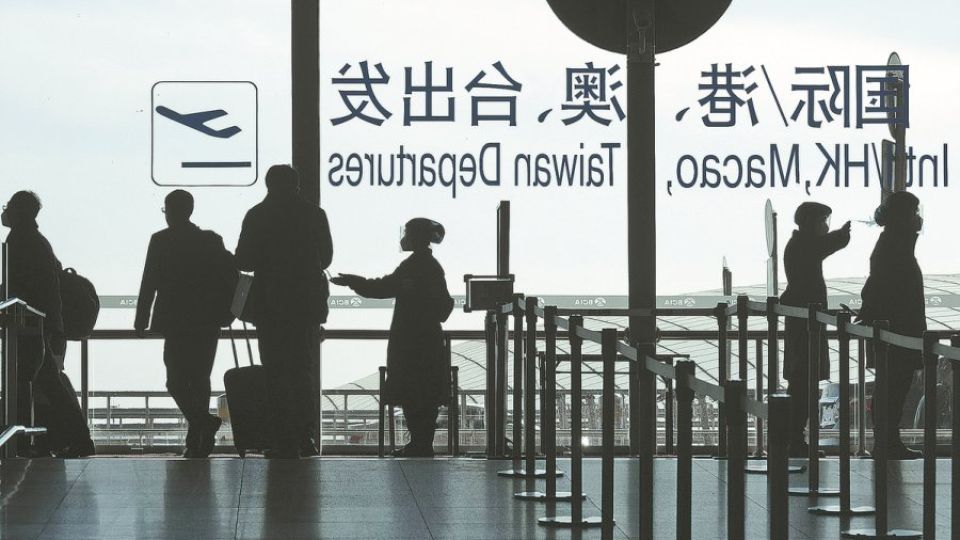January 4, 2023
BEIJING – Tourism: Availability of flights, visas key in recovery
China’s outbound tourism market is showing good growth momentum and is expected to make a robust recovery amid the nation’s optimized COVID-19 response measures and relaxed travel restrictions.
According to travel portal Trip.com Group, bookings it received for international flight tickets rose by 145 percent year-on-year during the three-day New Year’s Day holiday. The portal is expecting such bookings to increase by 260 percent during the Spring Festival holiday later this month.
Airline international passenger volume saw a 70 percent increase over the holiday, recording their best performance since 2019, according to Flight AI, a database of Trip.com Group.
In December, China optimized its COVID-19 response measures, aiming to revitalize the economy and bring people’s lives back on track.
According to the latest travel policy, announced by the State Council’s Joint Prevention and Control Mechanism on Dec 27 and to take effect on Jan 8, international passengers arriving in the Chinese mainland no longer need to quarantine or undergo a nucleic acid test on arrival.
Responding to the adjustments, the National Immigration Administration released a notice on Dec 27 saying it will resume services of approving passport applications, and tourism and business permits for the Hong Kong and Macao special administrative regions on Jan 8.
“The policy adjustments will help in the recovery of China’s inbound and outbound tourism markets. … (My company hopes) to benefit from the new policy adjustments,” said Xu Xiaolei, chief branding officer of China Youth Travel Service, a travel portal headquartered in Beijing.
Xu said that consultancies for international trips and searches for visa information, flight tickets and hotels surged on the platform after authorities announced on Dec 26 the downgrading of COVID-19 management from Class A to Class B starting on Jan 8.
“Searches for visa information increased fivefold on the platform that day. Our users showed a higher preference for overseas destinations,” he added.
Travel portal LY.com said that as of 2 pm on Dec 27, bookings for international flight tickets rose by 400 percent compared with the previous month. Visa consultancies rose by 100 percent for two consecutive days from Dec 27, it said.
Figures from online travel agency Fliggy show that searches for international flight tickets on the platform increased eightfold after the policy adjustments on Dec 27 and views on its digital visa center increased 8.3-fold year-on-year.
LY.com said that its users prefer destinations in Southeast Asia, including Thailand, Singapore and Indonesia, and that flight bookings to these destinations, from Jan 8 to Jan 21, surged by 277 percent compared with the previous month.
However, some industry insiders remain cautious about the recovery of the inbound and outbound tourism markets.
Gu Huimin, a professor at Beijing International Studies University’s School of Tourism Sciences, told Beijing Business Today that outbound tourism may see the first wave of recovery during the Spring Festival holiday later this month, but the recovery will also depend on the epidemic situation and the availability of flights and visas.
Travel portal Fliggy pointed out that while China has optimized its COVID-19 policies and relaxed entry restrictions, some countries and regions still require travelers from China to take a nucleic acid test on arrival.
For example, the United States announced last week that all travelers, age 2 and older, must have a negative nucleic acid test result 48 hours before departure from the Chinese mainland, Hong Kong or Macao.
Japan, South Korea and Italy announced that people arriving from China must show a negative nucleic acid test result.
In response, the Ministry of Foreign Affairs said China is ready to step up communication with the rest of the international community and work together to prevail over COVID-19. It said it does not believe that the entry restrictions some countries have imposed on travelers from China are based on science.
The ministry said it resolutely opposes any political trickery under the pretext of epidemic control, and that corresponding measures will be taken in accordance with the principle of reciprocity for different situations.
In the past three years, China’s outbound tourism has been sluggish due to COVID-19 restrictions, as people put aside plans for international travel, according to a 2022 report by the China Tourism Academy.
Outbound visits may have reached 26 to 30 million in 2022, roughly 20 percent of the number in 2019, according to the report.


